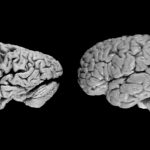A recently published study from McMaster University suggests that electronically-delivered cognitive behavioral therapy may be more effective than face-to-face therapy for the treatment of depressive disorders. The findings were published in the journal EClinicalMedicine.
“Cognitive behavioural therapy (CBT) is a widely used treatment for depression. However, limited resource availability poses several barriers to patients seeking access to care, including lengthy wait times and geographical limitations. This has prompted health care services to introduce electronically delivered CBT (eCBT) to facilitate access,” the co-authors explained in their findings.
Through a systematic review of the literature associated with eCBT and face-to-face CBT, researchers scoured through EMBASE, MEDLINE, CINAHL, and Psych Info databases, up until February 2020. 17 studies were chosen for their analysis.
“All stages of literature screening and data extraction were completed independently in duplicate. Data extraction and risk of bias analyses, including GRADE ratings, were conducted on studies meeting inclusion criteria. Qualitative measures are reported in a narrative summary,” the co-authors stated in the findings.
“We pooled quantitative data in meta-analyses to provide an estimated summary effect. This review adheres to PRISMA reporting guidelines.”
Based on the 17 studies analyzed, the findings declared that eCBT was perhaps more effective than face-to-face CBT at easing severe symptoms associated with depressive disorders. The results also suggest that eCBT could be conducted for less monetary value.
“Our results found eCBT is at least as effective as face to face CBT, thus eCBT should be offered if preferred by patients and therapists,” the findings concluded.


